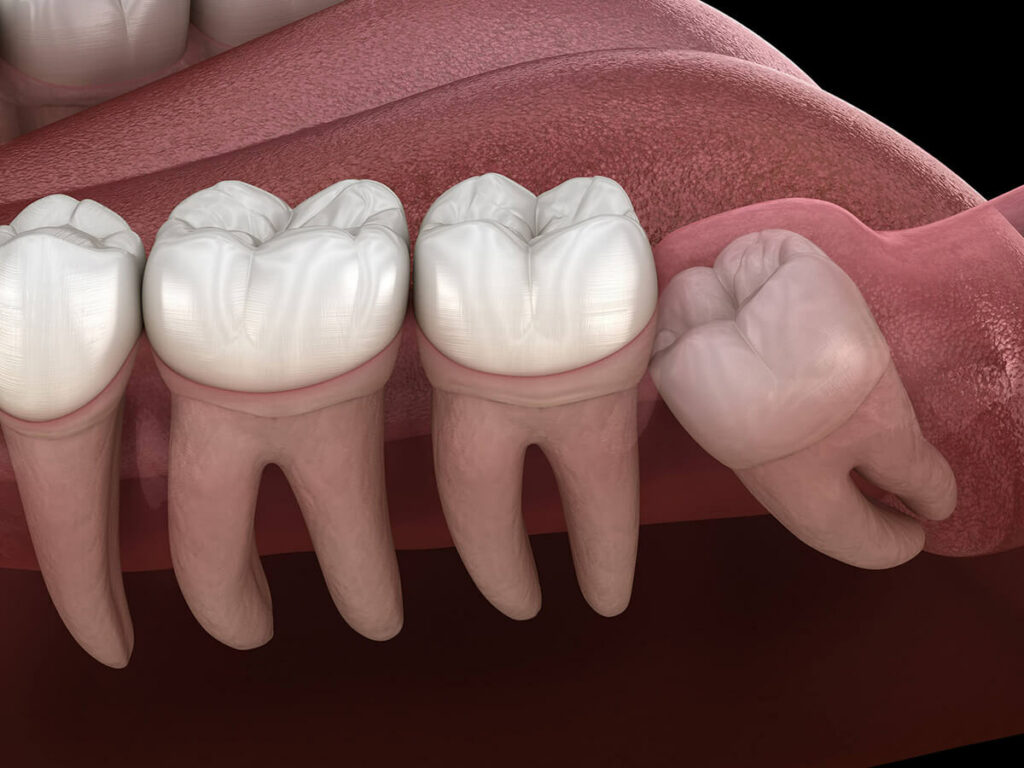Wisdom Teeth Removal
Wisdom teeth are the third molars in the very back of your mouth. They don’t always need to be removed, but they can cause problems if they are not growing in properly. We provide advanced state-of-the-art oral surgery and wisdom teeth removal. If you’re struggling with your wisdom teeth, please call us for a consultation.
Wisdom Teeth Removal in Wichita, KS
Wisdom teeth are the final set of molars. They come in anywhere between the ages of 15 to 25 and are known to cause issues with many patients’ oral health. We can visually examine your wisdom teeth (if they have already erupted) or use X-ray imaging to assess if your wisdom teeth need to be removed. If your wisdom teeth need to be removed, Humlicek Dental specializes in offering cutting-edge, state-of-the-art oral surgery services.

-
How do I know if my wisdom teeth need removed?
While every patient is different, there are some common signs that indicate the need to have your wisdom teeth removed. These signs include:
- Impaction, i.e., if the tooth is stuck under the gums or is completely hidden. If wisdom teeth aren’t able to emerge normally, they can become trapped within your jaw which can result in infection or cause a cyst that can damage other teeth or roots.
- Changing bite alignment—wisdom teeth can grow at various angles in the jaw, sometimes horizontally, this can cause a change in your bite alignment.
- Crowding or damage to existing teeth caused by wisdom teeth not having enough room to come in properly.
- Emerging only partially—if your wisdom teeth are only partially emerged through the gums it can cause a magnet for bacteria that can cause gum disease and oral infection.
Many dentists recommend removing wisdom teeth at an early age, before the roots and bone are fully formed and when recovery is faster.
-
What is an impacted wisdom tooth?
An impacted wisdom tooth arises when there isn’t sufficient space for it to emerge naturally. The degree of impaction varies based on the tooth’s position within the jaw. Soft tissue impaction occurs when the crown of the tooth has penetrated through the bone, but the gum is still covering part of the tooth. Partial bony impaction is characterized by the tooth partially surfacing while a section remains below the jawbone. Complete bony impaction takes place when the tooth is wholly enveloped by the jawbone.
More Questions?
If you have more questions about wisdom teeth extraction, please contact our office and we will be happy to discuss further.

